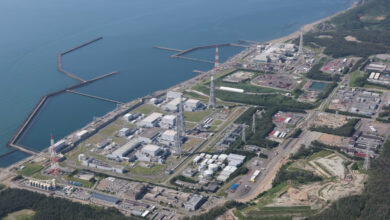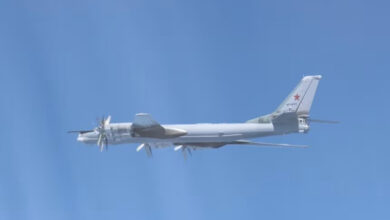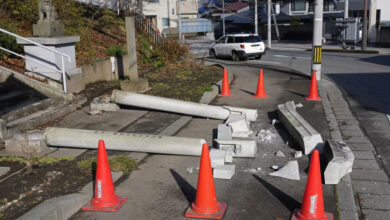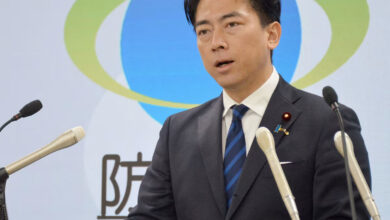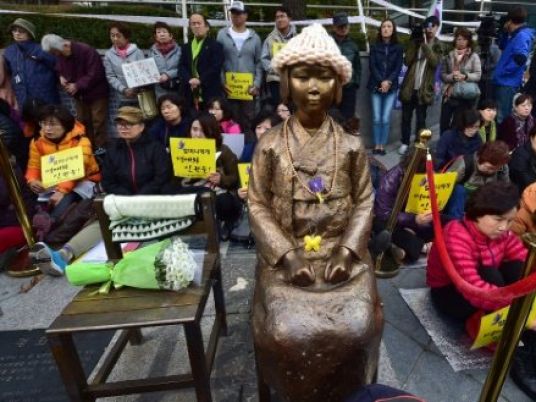
Senior officials from South Korea and Japan will meet on Sunday to prepare for talks between their foreign ministers to settle a row over wartime sex slaves which has long strained relations.
The ministers will hold a one-day meeting in Seoul on Monday to discuss the issue of "comfort women" forced to work in Japanese military brothels during World War II, and other matters.
South Korean President Park Geun-Hye has said settlement of the issue remains the "greatest stumbling block" to friendlier ties.
When she met Japanese Prime Minister Shinzo Abe in Seoul last month for a rare summit, they agreed to speed up talks on the issue. The foreign ministers' meeting on Monday is part of such efforts.
Up to 200,000 women are estimated to have been sexually enslaved by Japan during the war, many of them Korean.
There are only 46 elderly Korean survivors.
Seoul is demanding a formal apology and compensation for the Korean survivors, claiming a 1965 agreement has no relevance to the issue.
Japan issued a landmark 1993 statement that expressed "sincere apologies and remorse" to the women "who suffered immeasurable pain and incurable physical and psychological wounds as comfort women".
Abe, who once added fuel to the row by questioning whether comfort women were really "forced" against their will to serve Japanese soldiers, says his government stands by the 1993 statement.
But Japan has long maintained that the dispute was settled in a 1965 normalization agreement with South Korea, which saw Tokyo make a total payment of US$800 million in grants or loans to its former colony.
In a fresh irritant ahead of the talks, Japanese news reports said Seoul was reviewing the relocation of a statue symbolizing the "comfort women" at the request of Tokyo. The statue currently stands in front of the Japanese embassy in Seoul.
South Korean foreign ministry spokesman Cho June-Hyuck on Saturday dismissed the reports as "preposterous".
Other Japanese reports said Japan would offer the establishment of a joint fund for the survivors as a way to settle the issue once and for all.
"Nothing has been determined yet but preposterous media reports keep coming out of Japan", Cho told journalists.
The reports were angering South Korean people and "raising a strong question whether Japan is approaching the foreign ministers' talks with any sincerity", he said.
The foreign ministry said on its Facebook page that the statue in question was set up by civilians and the government had no say over its location.
Before last month's meeting in Seoul, Park had rebuffed all previous bilateral summit proposals, arguing that Tokyo had yet to properly atone for its wartime past and 1910-45 colonial rule.
At the senior officials' talks on Sunday afternoon, Lee Sang-Deok, the director general of Northeast Asian affairs at the foreign ministry, will meet with his Japanese counterpart, Kimihiro Ishikane.
The endless row over Japan's wartime conduct has been a diplomatic headache for the United States which is seeking to strengthen security cooperation with the two allies against nuclear armed North Korea and its ally China.

